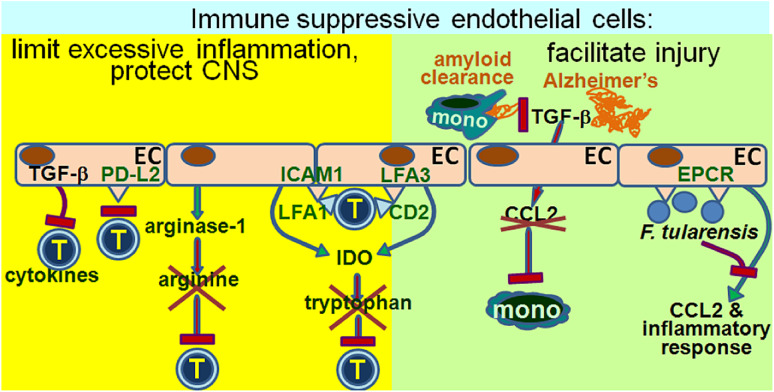Fig. 3.
Endothelial cells as immune suppressive cells. Through a variety of approaches, both cell contact–dependent and cell contact–independent, endothelial cells can inhibit immune reactivity. The physiological benefit of this immune suppressive capability of endothelial cells is that it limits excessive inflammation that could otherwise lead to tissue injury. However, the immune inhibitory activity of endothelia cells can also be induced by pathogens to as a protective strategy from immune destruction. Furthermore, it can prevent the normal immunological processes that maintain health, such as in the tightly regulated recruitment of monocytes to limit amyloid accumulation that otherwise occurs in Alzheimer’s disease

